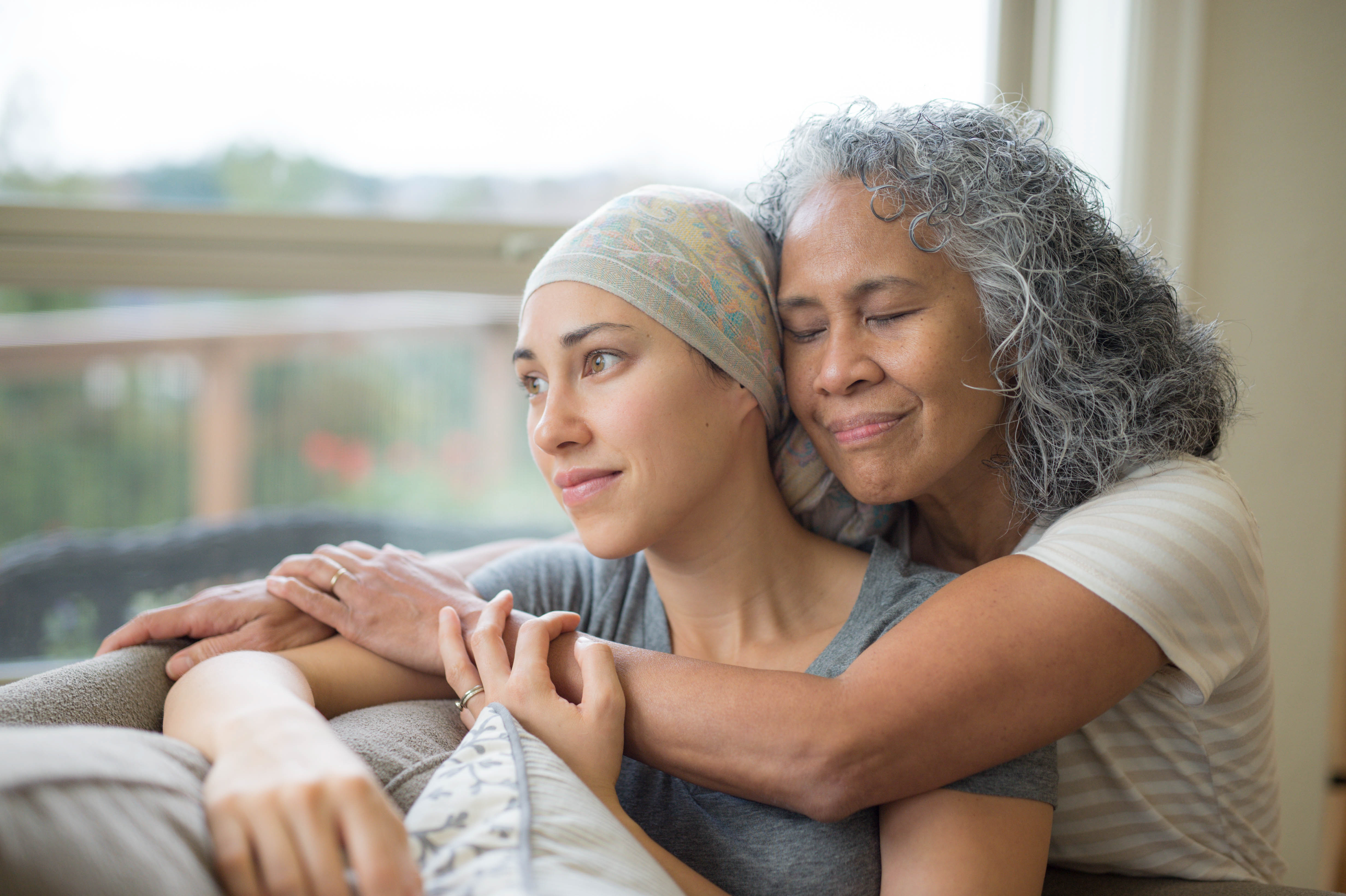As a caregiver you may neglect to take good care of your own needs because you are so focused on caring for your loved one. This is understandable, but to offer your loved one the best possible care, you need to be healthy and well yourself, both physically and emotionally.
Ways to Care Yourself
- Get some form of exercise like walking or an aerobics class.
- Create a support system. Call friends or family when you need to talk or need help.
- Keep up with a hobby or something you enjoy doing, such as reading, painting or gardening.
- Try to stay connected with friends even if you do have to cut back on your social life.
- Eat well-balanced meals. Caregiving can leave little time, and many people turn to fast food or junk food. Get the nutrition your body needs.
- Have a place where you can go to “escape” and just be by yourself.
- Set priorities each day and make sure the most important tasks get done, but try not to worry about items further down on your to-do list.
- Seek proper medical care for yourself as well by seeing your primary care provider (PCP). Follow any directions given by your PCP. For example, take any medications as prescribed.
- Try to cut out smoking and drinking alcohol.
- Try to get a good amount of sleep each night and find time to rest throughout the day.
Accept Help from Friends and Family. Learning to let go and to accept help will lower your anxiety levels and raise your spirits. People want to chip in, but they may not be sure what kinds of help you need. Keep a list of all caregiving tasks. That way, when friends or family offer to help, you can give them specific tasks. Try using a caregiver mobile app to help you coordinate help from family and friends.
Take a break. If you’re a full-time caregiver, you can’t always take a day off, but learning techniques to alleviate stress throughout the day can be extremely helpful. Try deep breathing techniques. Listen to relaxing music, take a short walk or call a friend. However you choose to get away during the day, you need at least 30 minutes a day to yourself.
 Read the PDF, Caring for Yourself, to create a physical and mental Self-Care Plan.
Read the PDF, Caring for Yourself, to create a physical and mental Self-Care Plan.
Stay Calm Strategy. When caring for a loved one with cancer, there will be times that are difficult and emotional. It’s unavoidable. Prepare for these moments by having a strategy in place to help yourself calm down if you feel anxious or overwhelmed. Having a plan in place, in advance, will help you better manage unexpected intense emotions.
Try the following strategies:
- Do a breathing exercise.
- Repeat a meaningful mantra, affirmation or prayer.
- Close your eyes and sit in silence.
- Stand up and stretch.
- Take a quick walk outside.
- Call a close friend or family member.
Ask for Help and Delegate Tasks. As a primary caregiver for a loved one with cancer, you may worry that if you don’t take care of your loved one, then no one else will. More than likely, there are friends and family members who really want to help—they just may not know how, so let them know! Use a chart to think of some tasks and some friends and family members who can help you with your caregiver responsibilities.
| Task | Helper | Notes |
| Example: Take John to appointment on Monday | Aunt Susan | Susan doesn't work on Mondays and she lives close by |
Caregivers and Depression. Feeling sad, depressed, or anxious after a loved one is diagnosed with cancer is normal. However, if these feelings start to interfere with your daily activities, you may need individual counseling from a medical professional. Symptoms of clinical depression include
- Ongoing sadness or feelings of hopelessness
- Loss of interest or pleasure in most activities
- Major weight loss or weight gain
- Agitation or restlessness
- Fatigue or no energy
- Trouble sleeping
- Trouble focusing, remembering, or making decisions
- Feeling worthless, guilty, or helpless
- Thoughts of death or suicide.
Don’t be afraid to seek help. For a referral to a mental health professional, reach out to the members of the healthcare team, visit your own doctor or call your insurance company for recommendations.
 Read the PDF, Caring for Yourself for more information.
Read the PDF, Caring for Yourself for more information.
Related Links
- Weekly Online Chat for Caregivers
- The Patti Robinson Kaufmann First Connection Program
- LLS Community
- Family Support Groups
